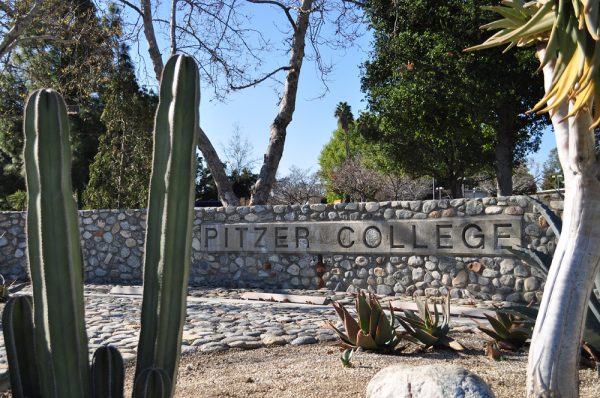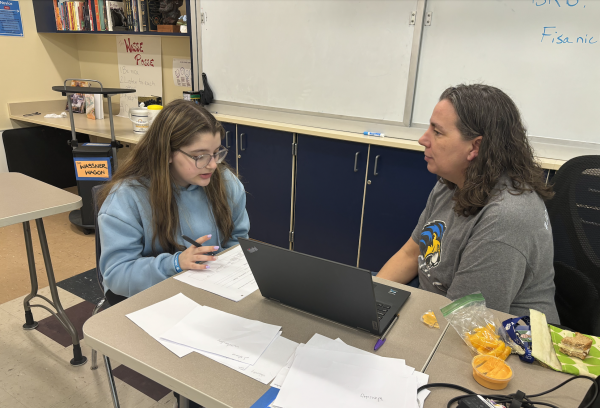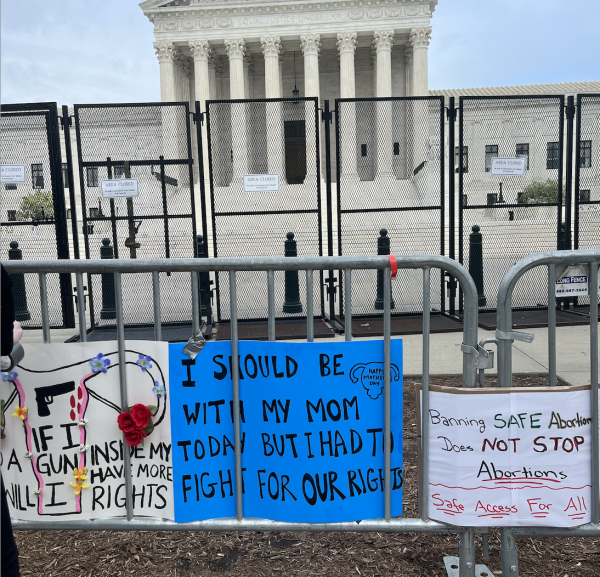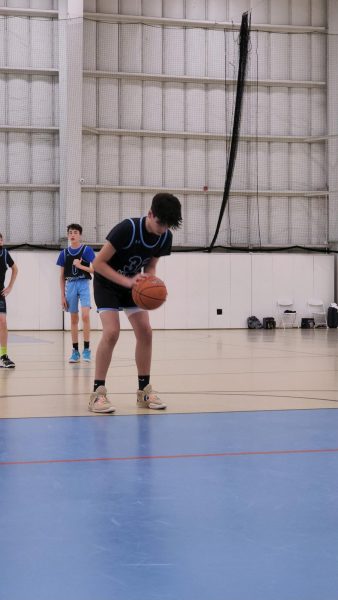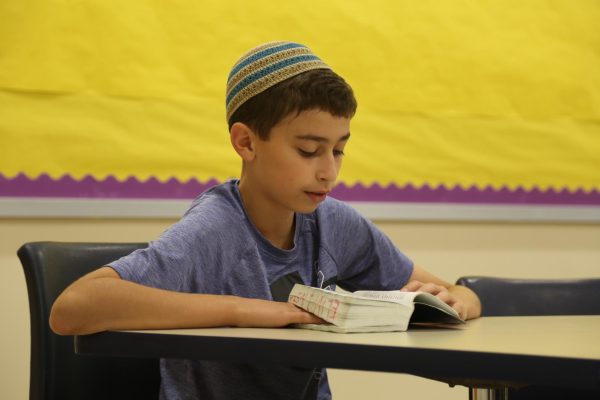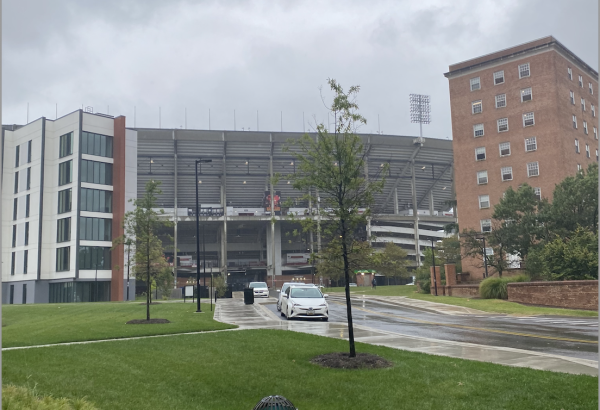Should students have been able to walk out for gun control without academic penalty or missing class?
Below are two responses to the following prompt: On March 14, CESJDS allowed participation in a school walkout for gun control in response to the shooting in Parkland, Fla. Should students have been able to walk out without academic penalty or missing class?
Guest Columnist Reilly Lowell believes that walkouts are free speech and a part of political discourse integral in the curriculum. Her opinion is located on the top of the page. Guest Columnist Ari Gershengorn argues that while gun control is an important topic, the school does not have the authority to take a stance on it by allowing a walkout. His opinion is located on the bottom of the page.
Yes, they should have been allowed
Every student at CESJDS has inevitably grown up surrounded by conflict by virtue of living in the Greater Washington area, surrounding a city that is the hub of national and global politics. To say that we’re used to political discourse — sometimes heated — is an understatement. Not only are we used to debating U.S. politics, but we also are accustomed to having tense debates about Israel with our classmates, people who may be our ideological opposites, but who we also consider our close friends.
It is understandable that JDS regulates student political expression at school in order to avoid unnecessary and hurtful conflict. However, the school has been so concerned with adhering to pluralistic values that they were afraid of us voicing our opinions. I know that JDS students are able to handle political debates in an exceedingly mature fashion. We can confront polarizing issues without letting them divide our community.
The support of the March 14 walkout among students, teachers and the administration was extremely powerful, but also surprising. JDS administration allowing students to partake in any political expression, especially that of a partisan nature, was something new to all students. However, the walkout proved to be empowering for those involved and a strong display of unity in the face of atrocities in our society. At the walkout, I delivered a speech explicitly in favor of gun control. Regardless of the students who disagreed with my statement, the ability to freely convey our emotions and concern proved to be something not only potent to the students but unobtrusive to our learning.
Some students said that a walkout is much different than dialogue, and our parents are not paying for us to exercise our First Amendment rights, but I believe this is acutely incorrect. Our parents send us to school to learn and grow as people. Part of this process is to find what we care about and stand up for it. Students who do not support having the walkout at our school are not forced to participate, but the ability for others who want to do so is a crucial part of being equal, just, and pluralistic, three ethical principles our school values in our mission statement.
Walkouts like the one on the 14th are not about standing as one. It is about standing together, as a group of diverse, intelligent, and mature individuals against ANY form of injustice, while respecting each other and the wide spectrum of opinions. If JDS does not allow the students to publicly address current events, JDS itself is being unjust in their practice.
Freedom of speech is valuable, not dangerous, which is why the First Amendment is for all citizens. Words are immensely powerful, but they do not directly cause harm; rather, how people respond to them does. Those who are not used to such healthy and divisive conversations are the ones who tend to respond irrationally. Every JDS student deserves the ability to talk about, process, learn from, and discover political issues for themselves, and JDS should support us students in our hopes to do so.
No, they should not have been allowed
The administration made the incorrect decision in supporting gun control in the wake of the horrific tragedy at Marjory Stoneman Douglas High School last month.
I would like to preface this article, however, by saying that I support gun control.
I personally believe that the best way to solve the epidemic of school violence is not through reforming mental health law or through arming teachers; I think the easiest and most effective solution would be to limit the number of people with access to dangerous and powerful weapons. I plan on attending the “March for our Lives,” a march in D.C. on March 24 supporting more restrictive gun laws.
However, while I believe that gun laws in the United States should be harsher, it is wrong for my school to take this position. Although it is not specifically written anywhere, CESJDS does not take political positions. JDS maintains that it is a pluralistic school, dedicated to allowing students to explore their political and religious beliefs as they choose. In endorsing a specific political view, JDS violates the protection those in the school with controversial opinions have come to expect.
I have heard several arguments defending the school’s choice to allow the gun control walkout; however, none of them have sufficiently defended the school. The first argument is that the walkout is not for gun control, but rather it is for safer schools. This is the argument that JDS has often tried to make, although the argument does not hold up under closer scrutiny. While the administation’s emails do not specifically mention gun control, this does not mean the March 14 walkout is not affiliated with an anti-gun establishment. The walkout on March 14 was originally planned by the Women’s March “for ALL people who have experienced gun violence, including systemic forms of gun violence,” according to Womensmarch.com. By choosing this day to walk out, although they may not want to, JDS is aligning themselves with a pro-gun-control institution.
Another argument is that JDS is not endorsing this type of speech, it is merely allowing it. This argument too, does not hold up. By allowing students to take time out of the school day and avoid the usual punishment for skipping class, JDS is placing this form of speech above the usual rules of the school, which reads very much like an endorsement.
Another argument is that were they not to allow the walkout, the school would be denying students the right to speak their minds, but that is not the case. At the memorial assembly in February, JDS encouraged students to be active in their communities and with the legislature, and, as always, if a student wants to miss a day of school to attend a protest, all they need is a letter from their parents to be marked “excused” for the whole day.
Clearly, something must be done to stop the epidemic of school violence, but it is not and should not be up to JDS to dictate what that is.
This story was featured in the Volume 35, Issue 5 print edition of The Lion’s Tale, published on March 22, 2018.



